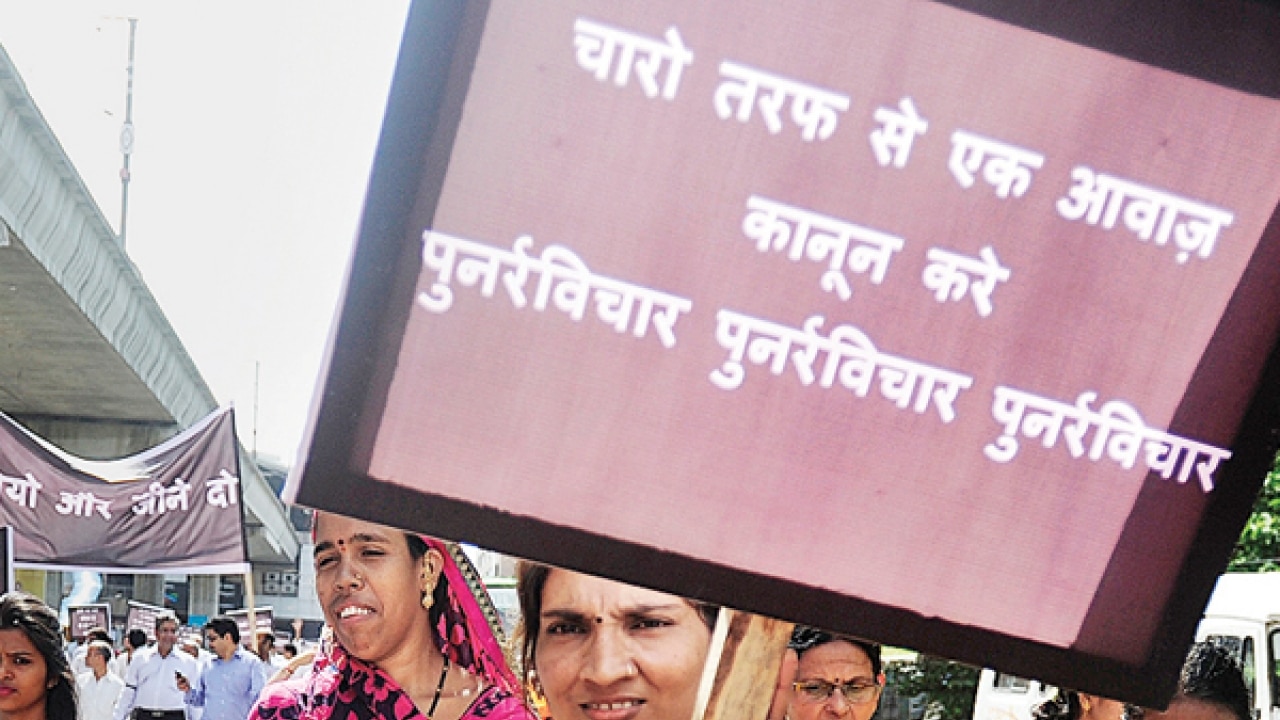
The Rajasthan high court judgement outlawing the waning Jain practice of voluntary fasting unto death, known as Santhara, has stirred up an avalanche of protests in the community. The court’s ruling, terming Santhara as suicide with religious endorsement, punishable under Section 309 of the Indian Penal Code (attempt to suicide), and its abetment by other persons as punishable under IPC Section 306 (abetment to suicide), is questionable on a number of counts. According to Jain tradition, Santhara is a way to attain ‘moksha’ and break free from the cycle of life and death and it is undertaken only by those with absolute control over their body and mind, unlike suicide which is often an emotional and impulsive act. But the court has sought to view Santhara from the prism of “essential religious practice” — an Indian judicial precept that decides the scope for State intervention in religious issues and the limits of Article 25 and 26 of the Constitution that safeguard religious freedoms. Secondly, the court ruled that though the 1996 Gian Kaur judgment emphasised that the right to life incorporated the right to die with dignity, the “right to die with dignity at the end of one’s life” was not to be confused or equated with the right to die an unnatural death curtailing the natural span of life.
These two pillars on which the judgement rests is heavily problematic. For one, it betrays a paternalistic attitude towards the individual and the community. The judgment said: “We do not find that in any of the scriptures, preachings, articles or the practices followed by the Jain ascetics, the Santhara or Sallekhana has been treated as an essential religious practice, nor is necessarily required for the pursuit of immortality or moksha. There is no such preaching in the religious scriptures of the Jain religion or in the texts written by the revered Jain Munis that Santhara is the only method, without which the moksha is not attainable.” Despite the authoritative tone, the court’s attempt to play arbiter is hardly conclusive. The Jain community is up in arms arguing that the court did not receive proper assistance from religious scholars, indicating the limited acceptance for such judicial pronouncements. While the verdict cites the abetment of Sati and excommunication of members by religious denominations as examples where the judiciary demarcated essential and non-essential religious practice, Santhara is different. It does not involve coercion or the violation of individual liberties as in Sati or excommunication. Moreover, the Jain community had not petitioned the courts seeking clarity on Santhara, but the judgment was the outcome of a PIL moved by a zealous lawyer.
Interestingly, the judgment said the defendants “did not produce evidence or material” to show that Santhara was practised even prior to or after the promulgation of the Constitution. Merely, because evidence or material was not produced does not make something non-existent or a lie. PILs require judicial activism, but the present case also encapsulates the dangers of accommodating PILs unless quality legal assistance is available to argue all aspects of a matter. In the political sphere, activists since Mahatma Gandhi’s time have resorted to fasting unto death. They have been force-fed too, but the danger to public order is adequate justification, arguably, for force-feeding. Last year, an Imphal court termed Irom Sharmila’s fast as “a political demand through a lawful means for repealing a valid statute”. Health minister JP Nadda has stated in Parliament that the guidelines on passive euthanasia laid down by the Supreme Court in 2011 would be followed and “treated as law”. The central government has taken a decision to decriminalise suicide attempts and repeal IPC 309. The drift of legal and public discourse is headed towards an acceptance of free will and the State’s recognition of the futility of penalising suicide attempts. With even those who it seeks to protect, opposing it, the judgment serves little purpose and is anachronistic.